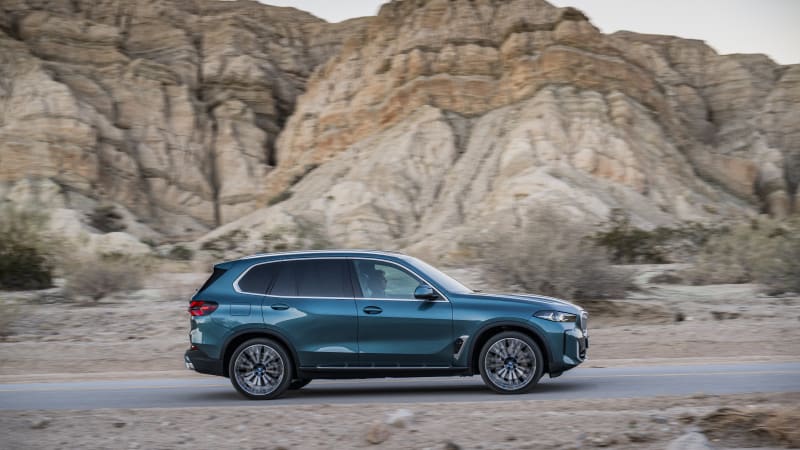BMW could drop 'i' from model names going forward

BMW’s range of electric offerings is growing, and its range of “’i”-branded EVs now includes an upcoming 5 Series variant. That growth is great for the brand, but it could cause confusion with its existing gas models, many of which have the lower-cased dotted letter in their alphanumeric names. So, things could be changing, as a recent report from Australia’s Drive points to a shift in BMW’s gas-model naming convention.
The publication referenced a BimmerPost forum entry from a BMW insider who has previously shared information on its vehicle names. They claim that BMW will drop the “i” from its SUV names and align them more closely with the format given to its electric models. In the U.S., that would mean an SUV like the X5 xDrive40i would become the X5 40 xDrive. Similarly, the X5 M60i would become the X5 M60 xDrive. BMW doesn’t offer a diesel model in the States, but those models are also expected to shift naming formats.
BMW has used the “i” naming convention for more than 50 years, as it was originally added to denote the use of fuel injection over the earlier carbureted models. All modern combustion vehicles are fuel injected, so that much is assumed even though name has stuck around, but the shift to electrification necessitates an update. That said, the change has not been confirmed by BMW, and the forum user noted uncertainty over whether the updates will stick.
Though the move away from its long-time “i” branding would be noteworthy, BMW is not the only automaker grappling with vehicle names in the shift to electrification. Early this year, reports surfaced that Mercedes-Benz was considering dropping its EQ branding. In that case, the automaker viewed separate branding as pointless since all its models are scheduled to go electric in the next few years. The same will be true at BMW, but both will continue selling gas vehicles for the foreseeable future.



